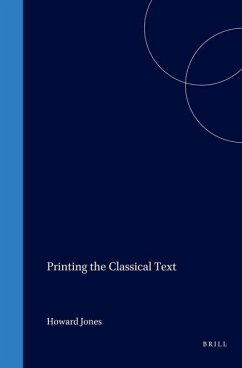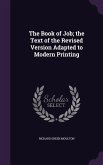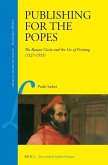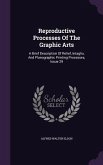The first Classical text was printed at Mainz in 1465. By the end of 1500 more than 350 printers in over 70 locations had contributed to the printing of more than 1500 separate editions. Almost every Classical Latin author had been printed, many in multiple editions, and the printing of Greek authors was well under way. Printing the Classical Text presents a comprehensive survey of this momentous period in the evolution of the Classical text. Since the course of Classical printing cannot be viewed separately from the course of printing generally, the opening chapter of the book locates Classical printing within the wider context by reviewing some of the cultural, intellectual, and commercial factors which affected the printing industry as a whole during the first fifty years of its development. The two central chapters are devoted respectively to the Latin and Greek editions themselves. With respect to Latin editions, which represent more than ninety percent of the whole, comprehensive chronological listings provide details of the printing history of each of the more than seventy authors represented. These are supplemented by a synoptic chart and by a running commentary in which the author identifies observable patterns and highlights the most distinctive features. The relatively small number of editions of Greek authors allows the author to accord them individual treatment in which each is examined in the context of its printer's instinctive publishing programme. This analysis is preceded by an account of the introduction of Greek studies into Italy, where all fifteenth-century editions of Greek authors were printed, and by a review of the typographical challenges which faced the earliest printers of Greek texts.The concluding chapter of the book takes up the controversial question of editorial quality. The author examines what the process of editing involved and attempts to assign to the earliest printed Classical editions their appropriate place in the evolution of the authoritative text in light of both the claims which the earliest editors themselves made and the less enthusiastic judgement rendered by modern critics.








